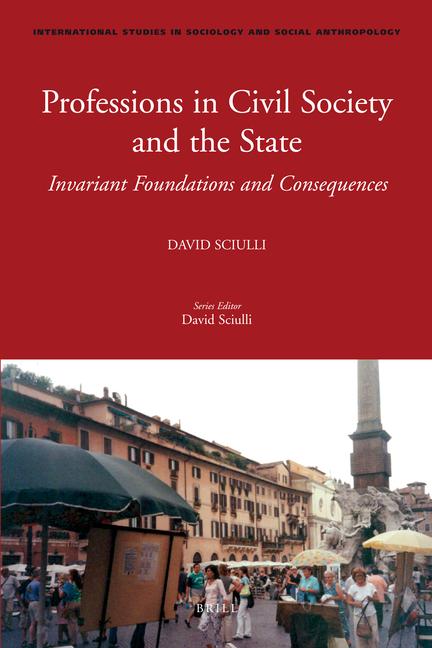
Zustellung: Mi, 30.07. - Di, 05.08.
Versand in 3-4 Wochen
VersandkostenfreiBestellen & in Filiale abholen:
Professions are central to any political sociology of major associations, organizations and venues in civil society underpinning democracy; they are not a subset of livelihoods in a mundane sociology of work and occupations. "Professions in Civil Society and the State" is at once elegant and startling in its directness and the sheer scope of its implications for future comparative research and theory. Not since Talcott Parsons during the early 1970s has any sociologist (or political scientist) pursued this line of inquiry. Sciulli s theoretical approach differs fundamentally from Parsons and rests on a breadth of historical and cross-national support that always eluded him. The sociology of professions has come full circle, leaving behind Parsons, his critics, and two generations of received wisdom.
Inhaltsverzeichnis
Introduction
I. The Professions Literature Today
1. Approaches and Debates from 1930s to Today
2. The Situation on the Continent
II. Professionalism outside Historical and Contemporary Pools
3. The Paris Visual Academie
4. Corporate Governance and Delaware Courts
5. Reflections, Analyses, Appraisals
III. A Structural and Institutional Approach
6. Professions and Structured Situations
7. Independent Socio-Cultural Authority of Professionalism
8. Consequences of Professionalism, Immediate and Institutional
9. Fiducial Responsibilities of Professionalism
10. Occupational Orientations of Professionalism: "Dividing Line" in the Occupational Order
11. Additional Constitutive Qualities: Professional Governance, Behavior, Shared Cognition
12. Drawing Distinctions: Structural Qualities, Illustrations and a Rereading References Index
I. The Professions Literature Today
1. Approaches and Debates from 1930s to Today
2. The Situation on the Continent
II. Professionalism outside Historical and Contemporary Pools
3. The Paris Visual Academie
4. Corporate Governance and Delaware Courts
5. Reflections, Analyses, Appraisals
III. A Structural and Institutional Approach
6. Professions and Structured Situations
7. Independent Socio-Cultural Authority of Professionalism
8. Consequences of Professionalism, Immediate and Institutional
9. Fiducial Responsibilities of Professionalism
10. Occupational Orientations of Professionalism: "Dividing Line" in the Occupational Order
11. Additional Constitutive Qualities: Professional Governance, Behavior, Shared Cognition
12. Drawing Distinctions: Structural Qualities, Illustrations and a Rereading References Index
Produktdetails
Erscheinungsdatum
31. August 2009
Sprache
englisch
Seitenanzahl
490
Autor/Autorin
David Sciulli
Verlag/Hersteller
Produktart
gebunden
Gewicht
938 g
ISBN
9789004178311
Bewertungen
0 Bewertungen
Es wurden noch keine Bewertungen abgegeben. Schreiben Sie die erste Bewertung zu "Professions in Civil Society and the State" und helfen Sie damit anderen bei der Kaufentscheidung.









